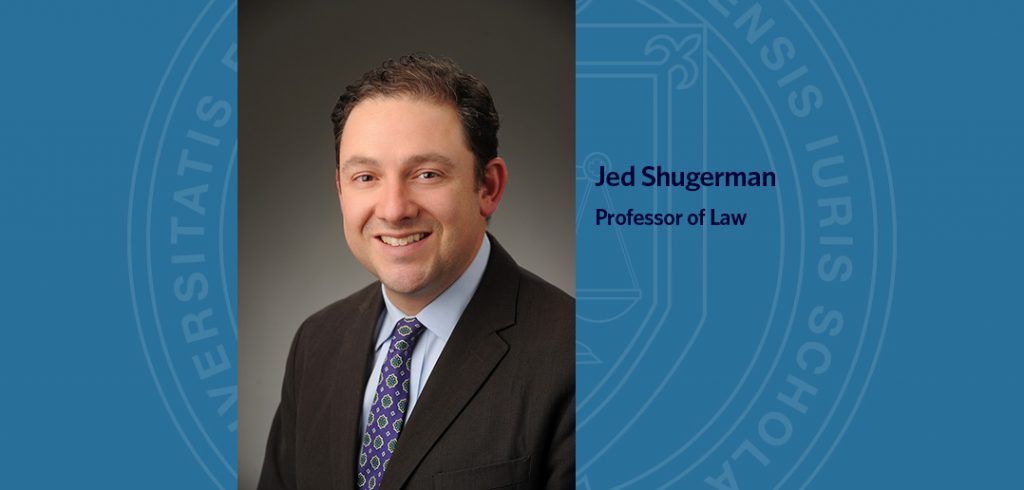Professor Jed Shugerman was quoted in The New Yorker and shared his expert opinion on the changing landscape and public perception of prosecutors.
Law students are far less sanguine about that choice of career today. Some of my students even tell me that a job as a prosecutor has become stigmatized among their peers—part of the contemporary consciousness of criminal justice as a major driver of systemic racial inequality. At the start of Harris’s prosecutorial career, in 1990, the American prison population had recently doubled, and tough-on-crime rhetoric was de rigueur, regardless of political party. The next two decades saw the explosion of mass incarceration, which is now the subject of deep social reckoning. During this past summer’s Black Lives Matter protests, when calls for defunding the police and for prison abolition broke into the mainstream, many doubted that a career prosecutor could meet the needs of the Democratic ticket. But, just as Harris reframed her own prosecutorial past by describing herself as a progressive reformer, so the social meaning of prosecution has been shifting in ways that track this era’s aspirations for criminal justice.
Prosecutors weren’t always so high-status. In the nineteenth century, they were about as esteemed as “dogcatchers,” doing “low-profile, low-prestige work,” often part time, according to Jed Shugerman, a legal historian at Fordham Law School, who is writing a book about the rise of prosecution as a stepping stone to higher office. He told me that the phenomenon began to emerge in the first half of the twentieth century, when prosecution became “the upwardly mobile way to get into the league of élites and, especially, into a political career.” The exemplar of the transformation of prosecution into a high-profile opportunity was Earl Warren, who, like Harris, went from being a local prosecutor, in Oakland, to being California’s attorney general. Shugerman’s research reveals that Warren’s political campaigns boasted of his crackdowns on the Mexican and Chinese communities and of his leadership in organizing the internment of Japanese-Americans during the Second World War. Warren won election as the governor of California by heightening public fear of Communists and Japanese immigrants. He went on to become the running mate to the Presidential candidate Thomas Dewey and, finally, the great Chief Justice of the United States, leading the liberal Warren Court, where he held unconstitutional some of the prosecutorial tactics he’d deployed.

